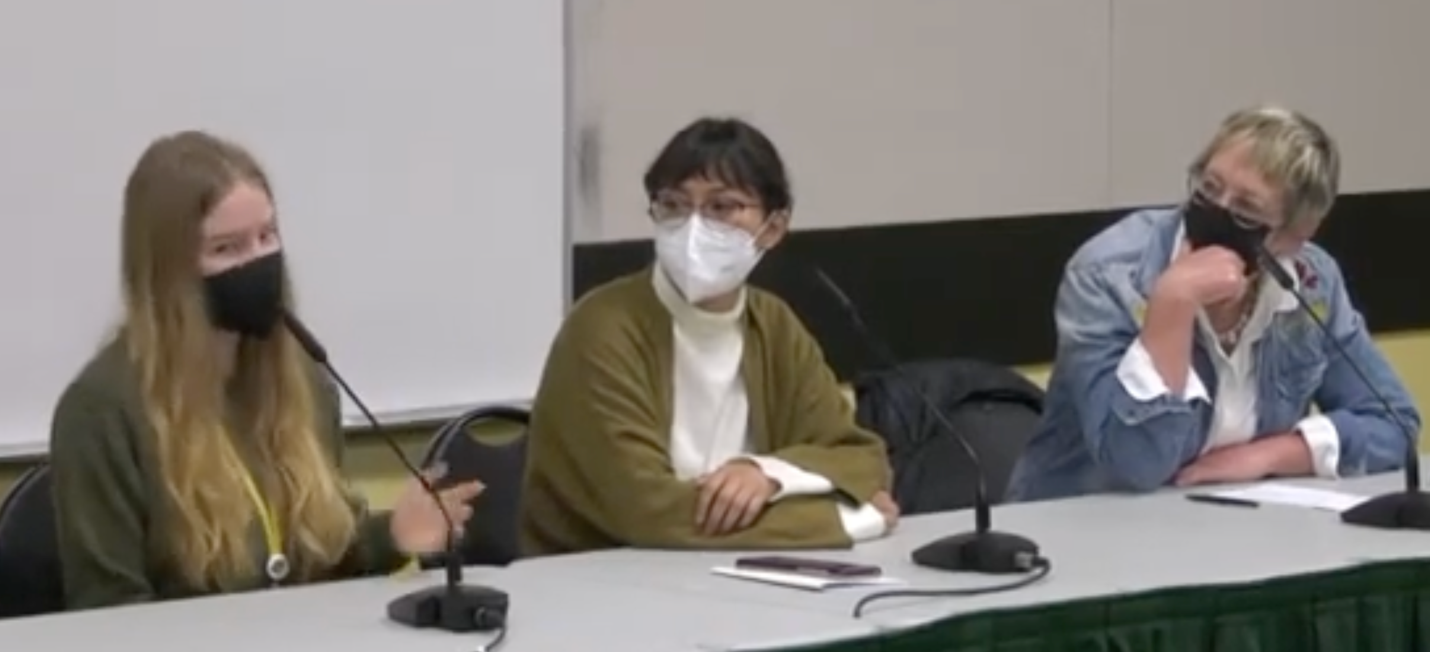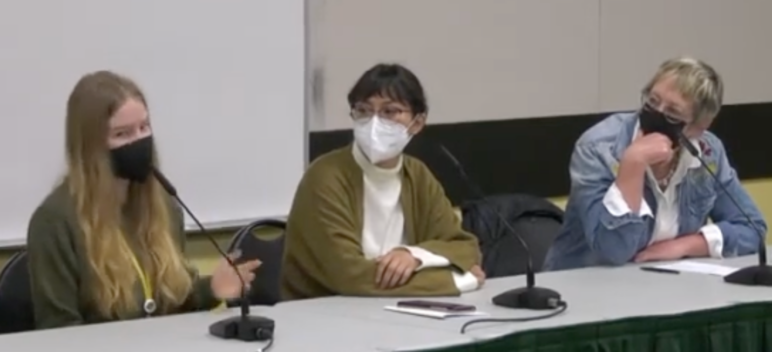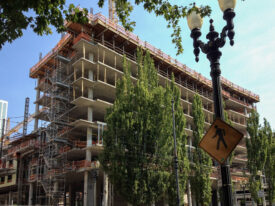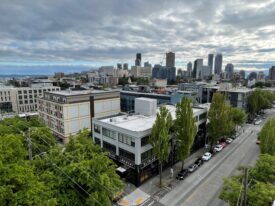The conversation shared below was part of the YIMBYtown 2022 conference, cohosted by Sightline Institute and Portland: Neighbors Welcome.*
Reducing urban car dependency is a necessary and integral initiative to making housing more affordable and neighborhoods healthier, not to mention lowering climate-warming emissions. Yet American transportation policy overwhelmingly continues to spend billions on freeways. How are transportation, housing, and climate advocates working to stymie the freeway industrial complex, and what does it mean for the abundant housing movement?
- Alex Contreras, founder of Happy City Coalition, emphasizes that transit and housing are different sides of the same coin and that we can’t talk about one without talking about the other. She outlines how freeways have always been placed in BIPOC communities. The fight against freeway expansions, she says, is about restoring and repairing communities and prioritizing housing and neighborhoods.
- Adah Crandall, organizer with Sunrise Movement PDX and Portland Youth Climate Strike, shares how she was inspired four years ago, as a seventh grader, to take action against a freeway expansion right next to her middle school. She discusses the challenges and benefits of youth in her activism and how to sustain energy and positivity to avoid burnout.
- Martha Roskowski, founder of Further Strategies, talks about how to get smarter with the messaging game to get out in front of DOT messaging. She stresses the importance of partnerships among intersecting advocacy groups in their shared fight against freeways. Martha also reminds us to look beyond the theoretical to really see the cumulative impacts freeway expansions have on communities.
- Ryan Packer, senior editor at The Urbanist, moderates the session. Topics include congestion pricing, using narratives and personal stories in advocacy work, and how to balance stopping freeway expansions with pushing for improved transit options and biking and walking infrastructures.
Related:
- FAQ about I-5 Rose Quarter Expansion and Decongestion Pricing in Portland
- The Trail Blazers Organization Hates ODOT’s Proposed Changes to I-5 at the Rose Quarter
- Commuters Would Come Out Ahead with Rush-Hour Tolls
*YIMBYtown 2022 occurred April 11–13 in Portland, Oregon, the fourth annual gathering (after some COVID delays) of “Yes in My Back Yard” (YIMBY) community leaders, organizers, planners, policymakers, educators, and housing providers eager to share resources and strategies for building more affordable, sustainable, and equitable communities.









